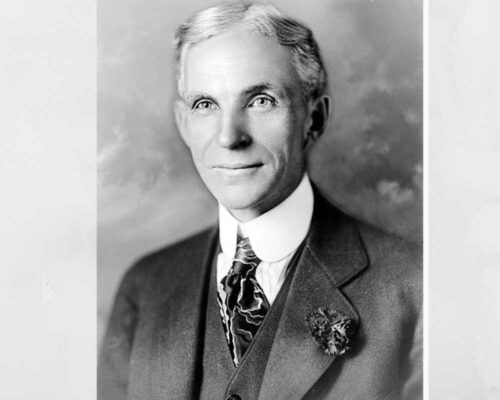Working on average 8 hours a day has been the norm for some time. It can feel short or even extended if you’re used to it. But where did the 8-hour work day come from? The 8-hour work day history can help us understand work schedules today.
However, 8 hours as the standard today should be reconsidered in today’s work environment. In order to comprehend the 8-hour concept better, I’ll review some background information. Along with that, I’ll share some tips on changing your schedule.
UPDATED: OCTOBER 8, 2022
- Background/History Of The 8 Hour Work Day
- How To Be Effective Working 8 Hours A Day
- Alternatives To 8-Hour Workdays
Background/history of the 8 hour work day
The idea of the 8-hour workday goes back to the 16th century. Although we can start back to that period, the idea did not become mainstream until the Industrial Revolution in Britain.
During that period, the average working hours ranged between 10-16 hours a day. It went up to 6 days a week, and child labor was common as well.
Although I could go in-depth about the long history, I want to discuss a few key points. I will lay out a brief history of how the 8-hour workday came to be.
Robert Owen’s Slogan
Owen, a textile manufacturer, and philanthropist (from Scotland) was well known for calling for a better-balanced workday. He was very influential in pushing for an 8-hour workday.

It’s not clear how Owen came up with the idea, but he divided 24 hours (in a day) into the three most important aspects of life. It’s where he came up with the slogan:
“Eight hours labor, Eight hours recreation, Eight hours rest.”
It made sense how that idea would work, as it helps divide the day into the right work-life balance. But that idea would help build the push for an 8-hour workday into reality later on in history.
United States
Henry Ford (Ford Motor Company)
One of the most well-known cases came from Ford Motor Company. In the 1900s, Henry Ford was willing to give the 8-hour workday a try.

Here are some of the things Ford did to implement the 8-hour workday model:
- Doubled workers’ pay to $5 a day < At the time, it was a lot of money to make in a single day (compared to current inflation, that’s an average of $129.55 a day in 2020).
- A reduced shift from nine to eight hours a day
After implementing them, here were some of the outcomes:
When it went into effect, many companies had questions about whether it would succeed or not. For instance, the pay increase sounded possible if workers were required to work 10-16 hours a day.
Ford was successful and did better than most of what the public thought about their approaches based on what happened. To this day, it’s one of the most well-known examples of the 8-hour workday experiment.
The Fair Labor Standards Act (1937)
Across the U.S., this act became law in 1937. As a result, some industries lead to establish a 40-hour workweek. Also, workers were eligible to receive overtime pay for those working beyond 40 hours a week.
Ultimately, this brief history highlights how the 8-hour workday became the standard in the modern workplace. It is still the case in today’s workforce.
Is the 8-hour work day outdated?
An 8-hour work day does not make much sense in the 21st century. It can be too long a day for some people depending on their job. People tend to stay focused and get more done within four to five hours a day.
How to be effective working 8 hours a day
The idea of working 8 hours a day is considered antiquated by many people. The practice, however, is still common in the modern workplace.
If you have to work an 8-hour workday for some reason, I will suggest five approaches to be the most effective at it.
Plan your day early
Ideally, you want to do it around the end of the day. But it’s possible to do it early the next day. If you can get some planning in before doing anything else, you’ll be fine.
When you do plan your day, write down tasks that need to get done first thing. I’ve talked about before writing down three priorities that need the most attention. So ask yourself each day: What are three things that you must take care of today?

By spending at least five or ten minutes getting ready, your day will go smoothly. By doing so, you are aware of what to expect when the day begins.
Work on your most difficult tasks first
For some people, they’re most effective during the morning hours. Those hours are when they’re focused on tackling the most challenging work.
For others, it might be the complete opposite. Those who are night owls tend to be the most focused during the nighttime. If that’s the case for you, then take that approach.
When you’re more energetic, you’re able to accomplish more challenging work than waiting until later. I am most productive when I tackle the most difficult work first thing in the morning. To this day, it’s worked out well, and I continue to follow that best approach.
Take breaks when needed
Taking breaks throughout the day is very helpful. Maintaining your focus when you need it is possible by refreshing your mind.
When taking breaks, make sure it’s away from a computer screen (or some form of electronics). I always suggest getting out in a different environment, such as going outdoors. Even stepping away from your workspace to go for a brisk walk can be beneficial.

Depending on what type of work you do or operate, I recommend doing it in shorter periods. What I mean by that is to take breaks a few times during the day.
That’s fine, whether it’s using the Pomodoro Technique (which I prefer) or taking a break every 60-90 minutes. Some people work better after an uninterrupted hour of work, followed by a 10-15 minute break.
Use your breaks to the fullest. Use whatever method works best for you.
Focus on one task at a time
I believe it’s never a good idea to multitask, as it can slow you down. In the age of the internet and electronics, it won’t work today.
You’ll be more effective and efficient working on one task at a time (regardless of whether it sounds silly or not). I commonly refer to this as single-tasking, which is more straightforward and more effective than multitasking alone.
Minimize distractions
Whenever possible, attempt to block distractions when you need to stay focused. While it is not easy to avoid distractions, you can minimize them by minimizing your social media and email notifications.

There are a lot of time-blocker apps you can use to avoid distracting websites. Putting your cell phone away or silencing it can also help if you don’t need it all the time.
Scheduling your day in advance can help minimize distractions. During those periods when you need to keep your focus, you’ll know when to ignore those distractions.
Alternatives to 8-Hour Workdays
In recent years, the concept of working eight-hour days has become antiquated. As we move into the 21st century, the 8-hour workday might become less common.
If you run a business or manage employees, you can consider a few options to replace the 8-hour workday. Consider the following:
Offer more flexible schedules
Hybrid schedules have become more common these days. A typical example is someone working at home two days a week while coming into the office three days a week.
Working longer days, but fewer days per work
Some places may offer workers up to 12-hour workdays but offer more pay and fewer days per week. Another option would be implementing a 4:10 schedule (10-hour workdays, four days a week, three days off). This option was offered at some places I worked at in the past.
Working shorter workdays
Shorter workdays may not be the norm, but it’s worth experimenting if you feel your workers would benefit from it. Some places have considered implementing a six-hour workday. If 8 hours sound too long, that could be a better choice.
Final Words
For many years, the 8-hour workday has been a traditional approach in the workplace. To this day, it’s still the standard in the modern workplace.
Understanding history is critical to where the world is heading today. There are ways to be effective by working 8 hours a day, but there are other alternatives.
If you’re in a position where you can avoid working 8 hours or more (and work fewer hours), it’s worth trying out.
Who knows if this concept will change in the future? Maybe there will be something better that makes working more productive and fulfilling.
Your Turn: Do you believe the 8-hour workday is effective?
I would like to hear your opinion on the concept of 8-hour workdays. Which approach do you believe is the most effective for working any job type? Do you think there are better alternatives, such as shorter workdays?
Share your thoughts by leaving a comment below. I look forward to reading them, and I’ll gladly respond promptly.
If you got value from this article, please bookmark this website to visit later for new posts every week. Spread the word to others. Sharing is caring! To get more of this type of content, you won't want to miss out my daily email letters. These are worth some golden nuggets and best tips to help you in your business. Sign up today! Count me in on the daily letters via email! For the latest videos that come out every week, subscribe to the YouTube channel. Also, be sure to check out our new space on Twitter X! YouTube Twitter (X) Medium Profile
Eric is the owner and chief editor of notimekillers.com. He takes great pride in helping people manage their time and grow their businesses. Eric is a firm believer in financial and time freedom, as he believes in financial independence and taking ownership of your time. “Time is your most important asset. It can be your best friend or worst enemy. How you use your time can shape the future you desire to have.” In his leisure time, Eric loves to write and read whenever possible. He enjoys going for long walks outdoors while doing in-home workout videos every week. You can also connect with Eric via LinkedIn.


It has been years since I worked an 8 hour work day. As a business owner, I typically put in 12-14 hour days, or days where I decide not to work at all. That’s the joy of self employment. I do know that I work better when I have a schedule to my day, even going as far as blocking out certain time frames for certain activities. I do the same when scheduling house work. Monday and Thursday I wash clothes, Tuesday is floor mop, etc. Without a specific plan in mind, I’m washing clothes every day but never seem to get caught up. Great information, I love the history part. Never knew that before.
Hi Cathy,
Having a schedule (or plan in place) can help make our days go smoother. Whether that’s working eight hours (or you working 12-14 hours), it’s so much easier to schedule the things we need to get done.
It’s great to know you have not worked eight hours in a long time. But working longer hours can get to you sometimes; surely, one of the downsides of self-employment. There are pros and cons to self-employment, for sure.
It sounds like you have your routine set in place. Of course, the history portion is fascinating and something I didn’t know before I did my research earlier.
Thank you for sharing your thoughts. They’re great insights for the readers to think about- very much appreciated!
This is very interesting to read more about the background of working 8 hours a day. Sometimes I work more than that,but I do think that it can be evened out by following all of your tips. Especially the one about starting early. I tend to procrastinate to much also with the more difficult tasks, but reading your blog post gave me the motivation to try and do that, so thanks!
Hi Lizzy,
Sometimes, working more than eight hours a day is common for some people. They work overtime and stay late at the office to meet project deadlines, or maybe other reasons. So it’s not uncommon.
You’re not the only one who procrasinates, especially when it comes to fulfilling difficult tasks. But more so, they’re the ones that need prioritization. If you can get in the habit of doing that, it’ll be easier down the road.
I’m glad you got some motivation from reading this article. I hope it’ll help with your work practices.
Thank you for sharing your thoughts- it’s much appreciated!
An interesting perspective you’ve got there. Yes, I think the time has come for an overhaul of the 8-hour workdays. The current millennial generation cannot cope with the lack of workplace diversity. And the advance of web technologies means anyone can now work remotely and avoid unnecessary commutes. A hybrid system between working from home and the office I believe is the best approach to cater for diversity.
Hi Steve,
The millennial generation (which I’m part of) notices that 8-hour workdays are part of the past, and outdated as well. With where the world is headed today, I think there will be changes to how we conduct workdays in general.
But that remains to be seen. Unfortunately, the 8-hour workday still is part of the norm in today’s workplace. How long will it last? I’m not so sure, but it may be a thing of the past at some point in time.
You make great points on the technological advances that have come about, and how it’s made working today much easier. If only that can be applied with a better understanding of the modern-day workplace.
Whatever lies ahead moving forward, let’s hope it’ll be for the better (and easier to make work schedules align with how the world operates today).
Thank you very much for your insights- I thought they were thought-provoking and valuable for our readers.
Thanks again for your comments- much appreciated!